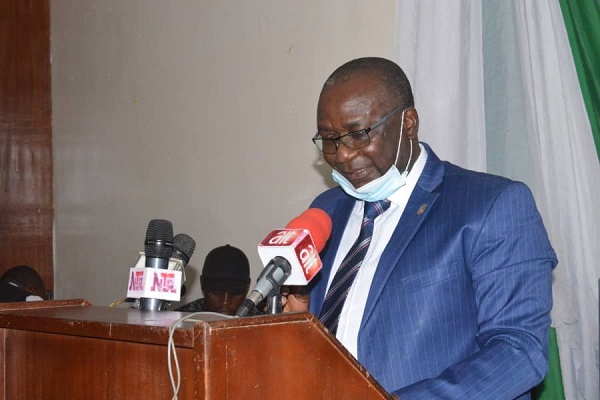
The Federal Government and stakeholders in the agriculture sector are strategizing to streamline the implementation of the National Gender Policy on Agriculture to reduce the vulnerabilities of women.
At a workshop in Abuja, the permanent secretary of the Ministry of Agriculture and Rural Development, Dr. Ernest Umakhihe, said the 11 point-National Gender Policy objectives would enhance food security, charting a road map on roles, responsibilities of the stakeholders and time lines for the implementation of the programme.
He averred that the policy legal framework was based on the recommendations of the National Gender Policy under the supervision of Ministry of Women Affairs, Protocols and Treaties signed by government on gender mainstreaming and the 1999 Nigeria Constitution as amended.
“The policy is consistent with the global 2030 Agenda for Sustainable Development adopted by world leaders at the United Nations Summit in New York, in September, 2015, which underscores the vital role agriculture plays in sustainable development and its importance in achieving the Sustainable Development Goals (SDGs).
“Gender mainstreaming is ‘Smart Economic’ and a prerequisite for eradicating poverty and promoting sustainable human development,” he stated and assured that the ministry and its agencies were committed to the socio- economic empowerment of women and girls in the sector.
Saying 75 per cent of the world’s poor (women) live in the rural areas and are involved in farming, and mostly depend directly on agriculture for livelihoods, Umakhihe pointed out that many in parts of the world including Nigeria, women are the main producers of food but they have limited access to farm inputs as there are huge gender disparities in the agricultural sector.
He noted that failure to address these gender gaps in roles, differences and inequalities between men and women posed a serious threat to the effectiveness of the agriculture development agenda.
The permanent secretary noted that the present administration under the leadership of President Muhammadu Buhari had repositioned agriculture as a business with return on investments as a mantra-agriculture as an alternative to oil hence, gender mainstreaming in agriculture remains fundamental to economic growth and poverty reduction.
In his goodwill message, the chairman, House Committee on Agriculture Production and Services, Hon. Dandutse Muntari, stated that the main targets of the policy were to ensure that women and men have equal access to agricultural inputs and services and control resources, assuring that the legislature would increase gender budgetary allocation in this year budget to ensure gender mainstreaming in the implementation of the policy.
Saying women are always at the receiving end in Africa, he contended that Nigerians would be more productive if women were properly engaged in agriculture,
In her address, the director, special duties in the ministry, Mrs. Fausat Lawal, said the workshop “should be seen as a demonstration of the ministry’s readiness to mainstream gender in agriculture through the instrumentality of policy document with the roles and responsibilities assigned to stakeholders.”
She added that the ministry would be grateful if the assigned roles and responsibilities would be translated to positive outcomes for the empowerment of the vulnerable group in the society, namely women and children.
“There are huge gender disparities in the agricultural sector as small holder farmers who are predominantly women have limited access to inputs. It is important to note that small holder famers are the gate keepers of food security and are feeding the nation even when they have limited access to agricultural input such as land, funds, extension services, information, fertilizer and seeds,” she said.
In her presentation, the assistant director and head, gender in the ministry, Mrs Ifeoma Anyanwu, highlighted the eleven objectives of the National Gender Policy framework and targets which include mainstreaming gender into climate, improving cultural practices that hinder women from access to inputs (land, finance, fertilizer and other agricultural assets) and gender-based violence, conflict prevention and resolution through advocacy, lobbying, mentorship and shared responsibility, training of women and youth in commercial agriculture through processing/value chain development and others.
Stakeholders at the event including the UN Women in Nigeria, Action Aid, the Albino Foundation, and Small-Scale Women Farmers etc, lauded the National Gender policy on Agriculture and assured their unalloyed support in the implementation of the policy.


